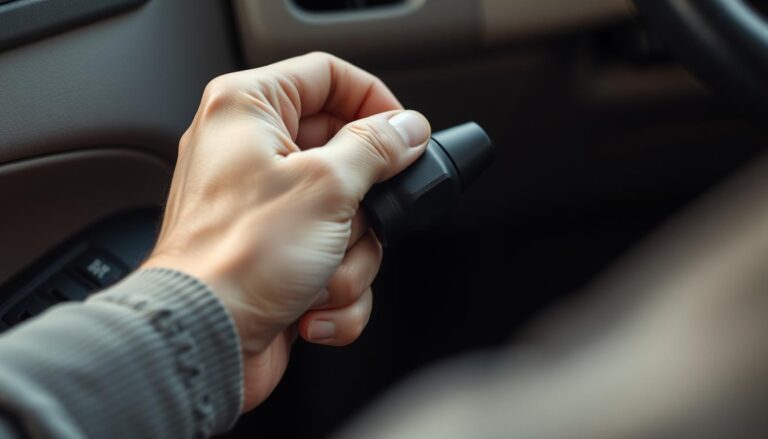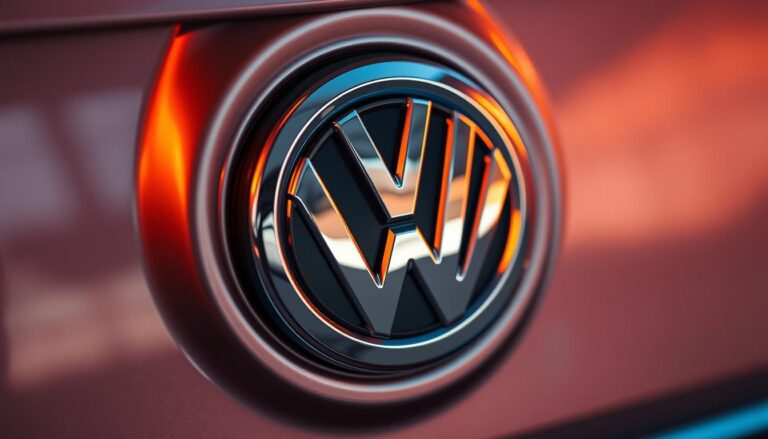When car repair costs surpass the car value, it presents a formidable challenge for many vehicle proprietors. This scenario frequently prompts individuals to ponder the most appropriate course of action.
For example, a used vehicle valued at $7,000 might necessitate a $4,000 transmission replacement, rendering further investment economically unfeasible. In such instances, a thorough comprehension of the financial repercussions of repair versus replacement is imperative.
This article endeavors to navigate you through the decision-making labyrinth, offering critical insights into the scenarios where repairing your vehicle is the more prudent choice and those where opting for a new one is more advisable.
Key Takeaways
- Assess the cost of repairs versus the car’s current value.
- Consider the average new car payment and depreciation rates.
- Evaluate financing options and interest rates for used cars.
- Determine the total cost of ownership, including maintenance and repairs.
- Make an informed decision based on your financial situation.
Understanding When Repairs Exceed Car Value
The determination of when to cease investing in car repairs necessitates a comprehensive understanding of the vehicle’s current market valuation and the scope of required repairs. This evaluation process encompasses several pivotal considerations, aimed at facilitating informed decisions regarding the maintenance of one’s vehicle.
Signs Your Car Might Be Worth Less Than Repairs
Indicators suggesting that repair expenditures may surpass the vehicle’s value include:
- Rising repair frequency
- Increasing maintenance costs
- Age and mileage of the vehicle
- Presence of existing major issues
Recognition of these signs necessitates a critical assessment of whether continued investment in repairs is economically viable.
How to Determine Your Car’s Actual Market Value
To facilitate an informed decision, owners must ascertain their vehicle’s current market value. This can be accomplished through:
- Utilizing online pricing guides such as Kelley Blue Book
- Examining listings for analogous vehicles within local markets
- Seeking counsel from dealerships or professional appraisers
Comprehension of the vehicle’s value is imperative for comparing it against the projected repair expenditures.

Common Expensive Repairs That Prompt This Decision
Certain repairs, known for their high costs, frequently prompt the decision to replace a vehicle. These include:
- Engine replacements or major overhauls
- Transmission repairs or replacements
- Electrical system overhauls
Confrontation with such costly repairs necessitates a thorough consideration of the expenses relative to the vehicle’s value.
What to Do If Car Repairs Exceed Value: Deciding Your Next Steps
Encountering a scenario where car repair expenses exceed the vehicle’s value presents a formidable challenge. It necessitates a systematic approach to decision-making, ensuring an informed choice is made.
Assessing the Extent of Necessary Repairs
Initiating the process involves a thorough understanding of the required repairs. A detailed evaluation by a mechanic is imperative to discern the scope of necessary interventions. Request a comprehensive report detailing all necessary repairs and their costs. This evaluation is crucial in determining whether the investment in repairs is justified or if vehicle replacement becomes a more viable option.
Identifying additional, potentially hidden problems is equally important. What appears to be a minor issue may reveal more complex problems, significantly impacting the overall cost and decision-making process.

Getting Multiple Repair Quotes
Securing multiple repair quotes is advisable to ensure fairness in pricing. This approach provides a clearer understanding of the average repair costs and helps identify any potential overcharging by service providers.
When comparing these quotes, it is essential to verify that they are based on identical specifications and services. This ensures a fair comparison and prevents unexpected costs.
Negotiating With Repair Shops
With multiple quotes in hand, engaging in negotiation with repair shops becomes a viable strategy. Service providers may be willing to offer competitive pricing or discounts. It is also important to inquire about any additional costs or fees not included in the initial quote.
Negotiation seeks a mutually beneficial agreement. Being well-informed and prepared can significantly enhance the chances of securing a favorable deal.
Considering DIY Repairs vs. Professional Service
Deciding between DIY repairs and professional service is another critical consideration. While DIY can be cost-effective for minor issues, complex problems often necessitate professional expertise for proper and safe execution.
Assess the pros and cons of each option based on your skills, the nature of the repairs, and your specific situation. For significant repairs, the reliability and warranty offered by professionals may outweigh the potential savings of DIY.
Exploring Your Options Beyond Repairs
When the cost of repairing your vehicle surpasses its market value, multiple alternatives emerge. At this critical juncture, a thorough analysis of the pros and cons of each option is imperative.
Selling Your Car As-Is
Selling your vehicle as-is to a buyer who accepts the responsibility for repairs is a viable option. This method is expedient, obviating the need for pre-sale repairs. Yet, it may result in a lower sale price due to the vehicle’s current state.
Trading In at a Dealership
Trading in your vehicle at a dealership presents another avenue. The dealership will evaluate your car’s condition and offer a trade-in value. While this option may not yield the highest return, it streamlines the process of acquiring a new vehicle, as the trade-in value can be applied towards the down payment.
Selling to Junkyards or Scrap Yards
For vehicles deemed irreparable, selling to junkyards or scrap yards is a practical solution. These entities salvage usable parts and recycle the rest, offering a financial return, albeit typically less than what could be achieved through private sale or trade-in.
Donating Your Vehicle for Tax Benefits
Donating your vehicle to a charity is a noble act that also offers tax benefits. The charity can utilize the vehicle or sell it to fund their activities, while you can claim a deduction on your tax return, potentially lowering your taxable income.
Partial Repairs as a Temporary Solution
In certain scenarios, opting for partial repairs can act as a temporary fix, enabling continued use of the vehicle until a more permanent solution can be afforded. This approach necessitates a careful evaluation of which repairs are critical for safety and functionality.
Each option carries its own set of advantages and disadvantages, with the optimal choice contingent upon your financial standing, needs, and personal preferences. By meticulously assessing your vehicle’s condition and your own circumstances, you can make an informed decision that aligns with your priorities.
Financial and Practical Considerations
Assessing the fiscal implications of car repairs versus replacement is paramount for a judicious decision-making process. Owners must meticulously evaluate the repair costs against the vehicle’s residual value. This evaluation is critical in determining the economic prudence of vehicle repair.
Calculating the True Cost of Repairs vs. Replacement
An informed decision necessitates a comprehensive calculation of repair expenses, encompassing parts and labor costs. This figure must then be juxtaposed against the vehicle’s current market valuation. Such an analysis is indispensable for ascertaining the economic viability of vehicle repair.
Insurance Implications and Options
Insurance considerations significantly influence the decision-making framework. For vehicles with advanced age or high mileage, insurance premiums might be more economical. Yet, the expense of repairs could remain a formidable barrier. An understanding of insurance options, such as comprehensive coverage, is crucial for cost mitigation.
Financing Options for a New Vehicle
For those contemplating vehicle replacement, exploring diverse financing avenues is imperative. A plethora of financing schemes, including loans and leases, are available, each bearing its own set of advantages and disadvantages. A comparative analysis of these options is essential for identifying the most financially advantageous solution.
| Financing Option | Pros | Cons |
|---|---|---|
| Loans | Ownership, flexibility | Depreciation risk |
| Leases | Lower monthly payments, latest models | No equity, mileage limits |
Balancing Emotional Attachment with Financial Reality
Ultimately, owners must reconcile their emotional bond with the vehicle against the stark realities of financial prudence. While sentimental value holds considerable weight, it must be juxtaposed against the practical considerations of repair versus replacement.
Through a meticulous evaluation of these financial and practical aspects, vehicle owners can arrive at a decision that harmonizes with their fiscal circumstances and personal inclinations.
Conclusion: Making the Smart Choice for Your Situation
The decision to repair or replace a vehicle is fraught with complexity, influenced by myriad factors including the cost of repairs and the vehicle’s overall value. This choice is not merely a financial consideration but also a reflection of personal priorities and circumstances.
It is imperative to evaluate the costs of repairs against the vehicle’s worth, taking into account both financial and practical implications. This evaluation must be comprehensive, encompassing the vehicle’s condition, age, and market value, alongside personal financial situations and needs.
The decision to repair or replace hinges on individual circumstances, including the vehicle’s condition, age, and market value, as well as personal financial situations and needs. By meticulously assessing these factors and exploring available options, such as selling the vehicle as-is or trading it in at a dealership, car owners can make an informed decision that aligns with their best interests.
Whether the decision is to repair or replace, understanding the true cost of car repair and the value of the vehicle is crucial in making a smart, cost-effective choice. This understanding enables car owners to navigate the complexities of vehicle maintenance and disposal, ensuring that their decisions are both financially sound and personally satisfying.
FAQ
What are the signs that my car’s repair costs might exceed its value?
Indicators include receiving a repair estimate that significantly surpasses your car’s market value, observing that your vehicle harbors multiple critical issues, or witnessing an escalation in repair costs due to unforeseen complications during the repair process.
How do I determine my car’s actual market value?
To ascertain your car’s market value, leverage online pricing guides such as Kelley Blue Book, scrutinize listings for analogous vehicles in your locale, or seek counsel from a dealership or a professional appraiser.
What are some common expensive repairs that might prompt the decision to replace a car?
Expensive repairs that may necessitate replacing your vehicle include engine replacement, transmission overhaul, significant electrical system repairs, and substantial bodywork necessitated by collision damage.
Should I get multiple repair quotes before making a decision?
Acquiring multiple repair quotes from disparate repair shops is advisable. It facilitates an understanding of the cost spectrum and empowers you to make an informed decision.
Can I negotiate with repair shops to lower the cost of repairs?
Negotiation with repair shops is feasible. Presenting them with your research on the car’s value and discussing the extent of necessary repairs may result in a more favorable estimate.
What are the pros and cons of DIY repairs versus professional service?
DIY repairs can curtail labor costs but may lack the warranty and expertise of professional repairs. Professional service, on the other hand, offers a warranty and superior workmanship but at a higher expense.
Is selling my car as-is a viable option if repairs exceed its value?
Selling your car as-is is a viable option. You can sell it to a private buyer, a dealership, or a junkyard, contingent upon the car’s condition.
How do I calculate the true cost of repairs versus replacing my car?
To determine the true cost, consider the total repair expense, the car’s current value, any potential future repair expenditures, and the cost of acquiring a replacement vehicle.
What are the insurance implications if I decide to repair or replace my car?
Repairing your car may not directly affect your insurance premiums unless you’ve filed a claim. Replacing your car, conversely, could alter your insurance premiums based on the new vehicle’s value and your insurance provider’s policies.
Are there financing options available for purchasing a new vehicle?
Financing options for new vehicles are available from many dealerships and financial institutions. Personal loans or other financial products are also viable alternatives.
How do I balance emotional attachment with the financial reality of my car’s condition?
To balance emotional attachment with financial reality, create a budget, assess your financial situation, and weigh the emotional value of retaining your current vehicle against the practicality and cost-effectiveness of replacing it.


